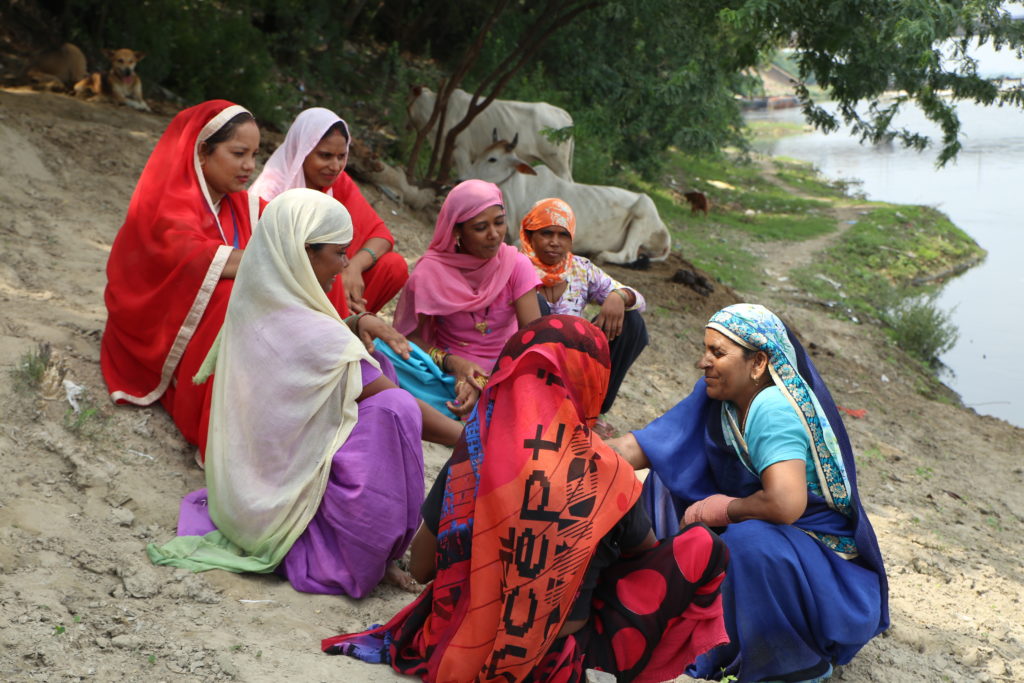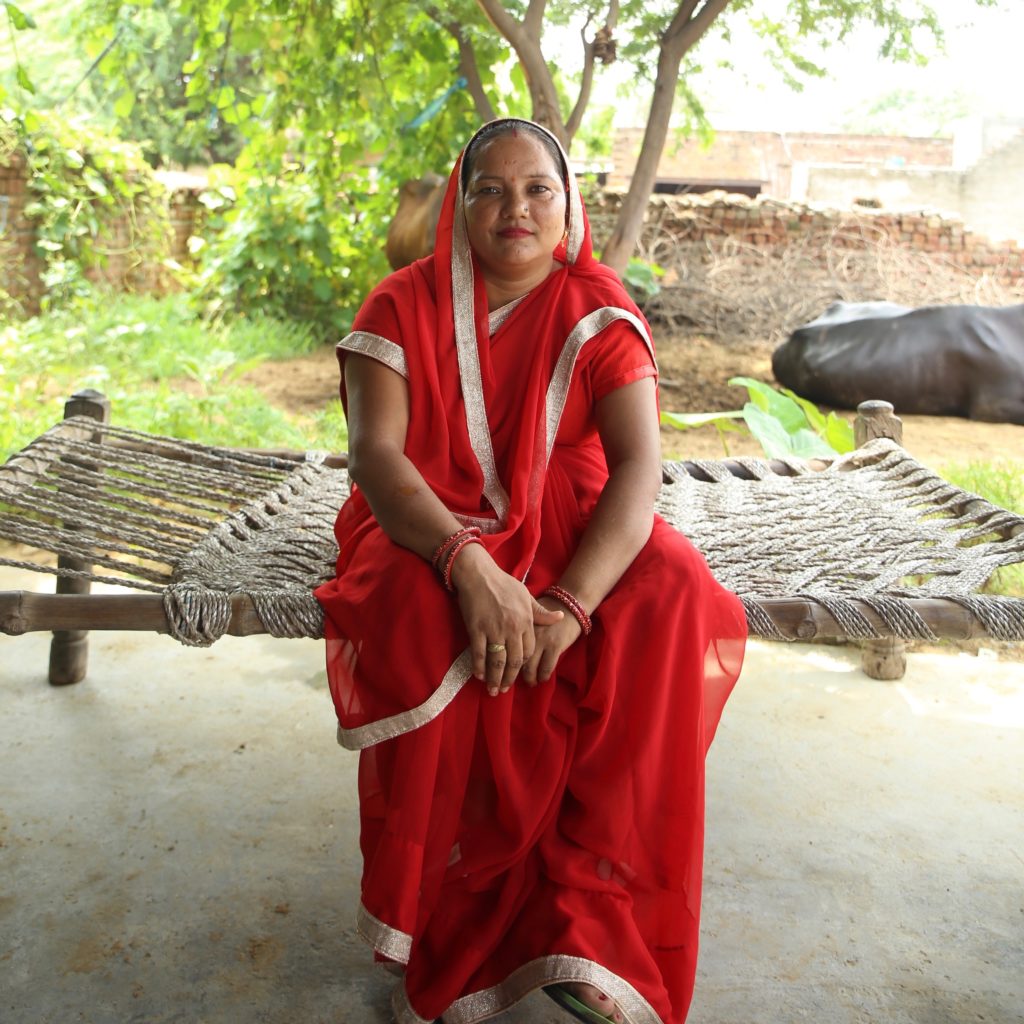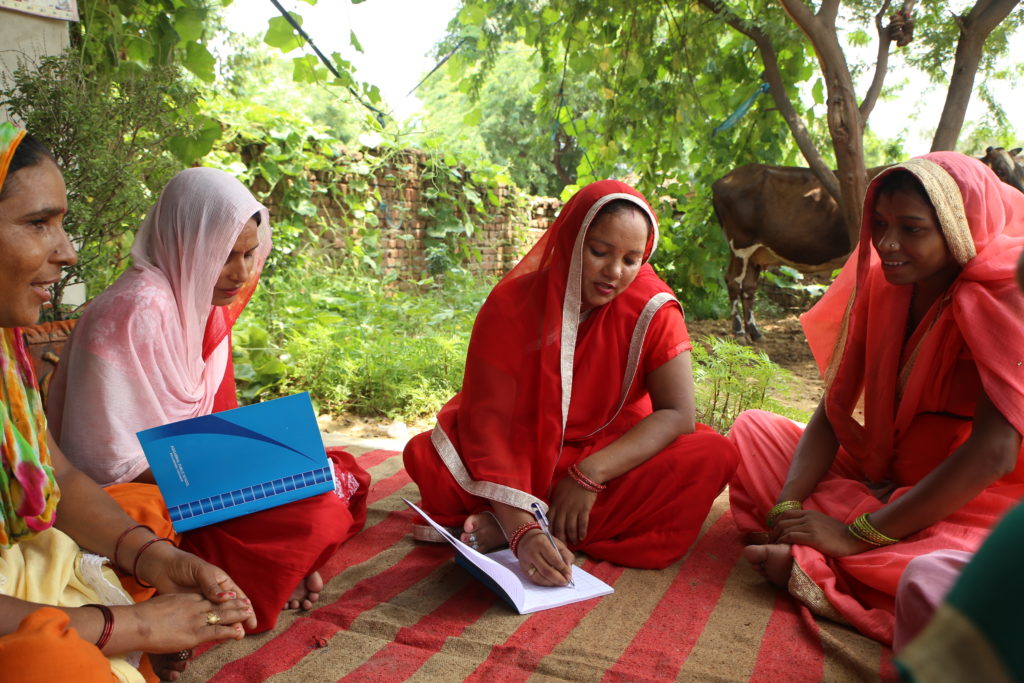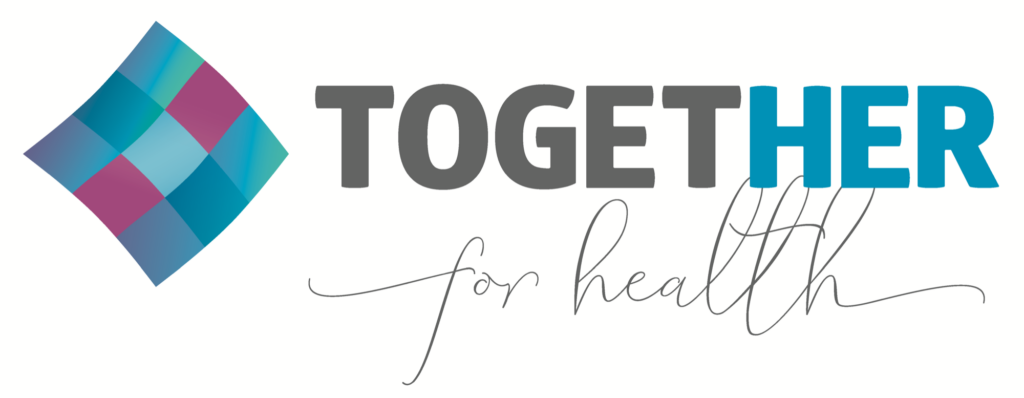Jagwati: Spreading Awareness and Courage
Educating Indian women about cervical cancer
January 2020 – Every morning, 30-year-old Jagwati starts her daily ritual by making notes for the group of women she needs to meet in her village. Jagwati is an ‘ASHA’ (Accredited Social Health Activist) worker in Arua village in Haryana, a northern state of India. She’s been working as a community health worker for over 10 years.
She is part of a unique government initiative started in 2005 by the National Health Mission of India. The initiative recruits and trains local women to spread awareness and information about key public health issues. The community health workers help ensure that all rural women have access to information about primary health care services like maternal care, vaccination, and nutrition. The Indian government has prioritized cervical cancer prevention under its National Program for Prevention and Control of Cancer, Diabetes, Cardiovascular Diseases, and Stroke (NPCDCS).
“My job is important because most women in my village are not even aware of the various health services that directly benefit them,” says Jagwati, as she prepares her task list. Today she will focus her efforts on sharing information about the importance of early detection of cervical pre-cancer.

Data show that there is a high burden of disease across the country. There are nearly a million cases of cervical cancer annually among Indian women. And nine of 10 women who die from the disease live in a low- or middle-income community like that of Jagwati’s village.
Jagwati was trained by the nonprofit organization CAPED (Cancer Awareness, Prevention And Early Detection) to help educate and motivate women about the importance of getting screened for cervical cancer and, if needed, have timely treatment of pre-cancers.

These community-level conversations are critical for increasing the number of women who seek cervical screening services. However, Jagwati knows that unlike other health services, this is a tricky one to discuss with women in her village because it’s not something that’s talked about in public. “It is difficult to discuss with many women as it’s about a private part of their body and they get very embarrassed,” she shared. She found that many women are reluctant to talk about it until she points out the serious health risk. Jagwati feels strongly about spreading the word among women who often communicate among themselves during social gatherings, because this will help further disseminate information among all age groups about the cervical screening services available in the village.
“During my training, I was told that this cancer is one that can be prevented, if it’s screened for and detected early or at pre-cancer stage,” she said. “So, I went from door to door to make every effort to convince women that the screening test is safe, secure, and critical for their health.”
Jagwati also set an example by getting herself screened for cervical cancer so she could share her own experience and dispel fears about the procedure.

“Most women in the village are unschooled and lack information about cervical screening, so they are easily afraid of such procedures. I had to give them first-hand assurance before I could take them to the screening camp.”
Over time, Jagwati has been able to get nearly 250 women from her village screened for cervical cancer. She attributes a big part of her success to the availability of services in the village, “It is important that this kind of screening and detection camp be held regularly at the village level itself, as it becomes easier to bring women to a venue close to their homes rather than needing to travel.” For most other health services, she finds that the trek to the hospital discourages women from accessing care.
As she adjusts her red ‘saree’, the uniform of the ASHA worker in the state of Haryana, she reviews her notes one final time. A decade of experience has taught her that she must be thorough when she addresses women’s questions and fears about cervical cancer. She knows that once equipped with information and support, the women of Arua can combat this disease together. “Once rural women find support in each other and are determined to take care of their health, then it’s easy to mobilize them to act as a strong collective group that can do anything.”
With that motivation, Jagwati steps out of her home with her notepad in hand, to start another day of her door-to-door campaign to spread awareness and courage in her village.


Faces of Hope India is a joint project of the American Cancer Society and TogetHER for Health
View more “Faces of Hope” stories
